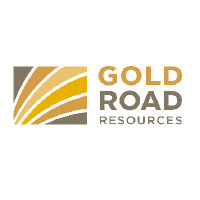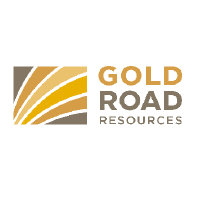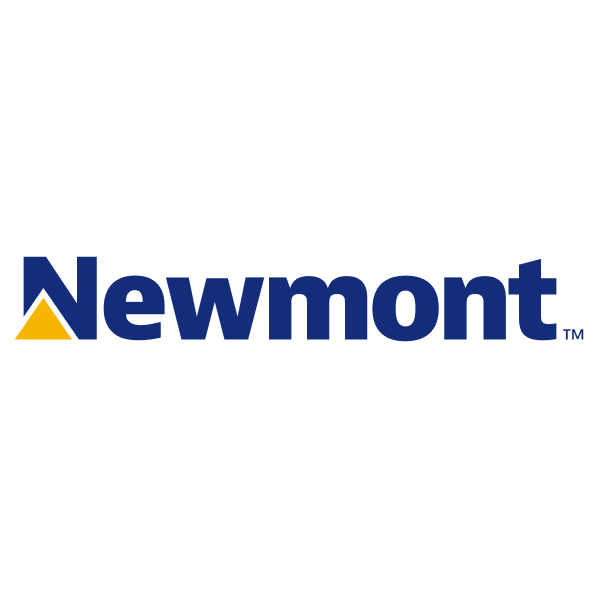

Gold Road Resources Ltd
ASX:GOR

Profitability Summary
Gold Road Resources Ltd's profitability score is hidden . We take all the information about a company's profitability (such as its margins, capital efficiency, free cash flow generating ability, and more) and consolidate it into one single number - the profitability score. The higher the profitability score, the more profitable the company is.
Profitability Score
We take all the information about a company's profitability (such as its margins, capital efficiency, free cash flow generating ability, and more) and consolidate it into one single number - the profitability score. The higher the profitability score, the more profitable the company is.
We take all the information about a company's profitability (such as its margins, capital efficiency, free cash flow generating ability, and more) and consolidate it into one single number - the profitability score. The higher the profitability score, the more profitable the company is.
Profitability Score
Margins
Earnings Waterfall
Gold Road Resources Ltd

Margins Comparison
Gold Road Resources Ltd Competitors

| Country | Company | Market Cap |
Gross Margin |
Operating Margin |
Net Margin |
||
|---|---|---|---|---|---|---|---|
| AU |

|
Gold Road Resources Ltd
ASX:GOR
|
3.8B AUD |
Loading...
|
Loading...
|
Loading...
|
|
| CA |

|
Australian Goldfields Ltd
OTC:GRXXF
|
26.9m USD |
Loading...
|
Loading...
|
Loading...
|
|
| RU |
P
|
Polyus PJSC
LSE:PLZL
|
70.4T USD |
Loading...
|
Loading...
|
Loading...
|
|
| ZA |
G
|
Gold Fields Ltd
JSE:GFI
|
776.6B ZAR |
Loading...
|
Loading...
|
Loading...
|
|
| ZA |
H
|
Harmony Gold Mining Company Ltd
JSE:HAR
|
211.2B ZAR |
Loading...
|
Loading...
|
Loading...
|
|
| CN |

|
Zijin Mining Group Co Ltd
SSE:601899
|
1T CNY |
Loading...
|
Loading...
|
Loading...
|
|
| US |

|
Newmont Corporation
NYSE:NEM
|
131.5B USD |
Loading...
|
Loading...
|
Loading...
|
|
| AU |
G
|
Greatland Gold PLC
ASX:GGP
|
168.4B AUD |
Loading...
|
Loading...
|
Loading...
|
|
| CA |

|
Agnico Eagle Mines Ltd
TSX:AEM
|
143.6B CAD |
Loading...
|
Loading...
|
Loading...
|
|
| CA |

|
Barrick Gold Corp
TSX:ABX
|
108.8B CAD |
Loading...
|
Loading...
|
Loading...
|
|
| CA |

|
Barrick Mining Corp
F:ABR0
|
66.8B EUR |
Loading...
|
Loading...
|
Loading...
|
Return on Capital
Return on Capital Comparison
Gold Road Resources Ltd Competitors

| Country | Company | Market Cap | ROE | ROA | ROCE | ROIC | ||
|---|---|---|---|---|---|---|---|---|
| AU |

|
Gold Road Resources Ltd
ASX:GOR
|
3.8B AUD |
Loading...
|
Loading...
|
Loading...
|
Loading...
|
|
| CA |

|
Australian Goldfields Ltd
OTC:GRXXF
|
26.9m USD |
Loading...
|
Loading...
|
Loading...
|
Loading...
|
|
| RU |
P
|
Polyus PJSC
LSE:PLZL
|
70.4T USD |
Loading...
|
Loading...
|
Loading...
|
Loading...
|
|
| ZA |
G
|
Gold Fields Ltd
JSE:GFI
|
776.6B ZAR |
Loading...
|
Loading...
|
Loading...
|
Loading...
|
|
| ZA |
H
|
Harmony Gold Mining Company Ltd
JSE:HAR
|
211.2B ZAR |
Loading...
|
Loading...
|
Loading...
|
Loading...
|
|
| CN |

|
Zijin Mining Group Co Ltd
SSE:601899
|
1T CNY |
Loading...
|
Loading...
|
Loading...
|
Loading...
|
|
| US |

|
Newmont Corporation
NYSE:NEM
|
131.5B USD |
Loading...
|
Loading...
|
Loading...
|
Loading...
|
|
| AU |
G
|
Greatland Gold PLC
ASX:GGP
|
168.4B AUD |
Loading...
|
Loading...
|
Loading...
|
Loading...
|
|
| CA |

|
Agnico Eagle Mines Ltd
TSX:AEM
|
143.6B CAD |
Loading...
|
Loading...
|
Loading...
|
Loading...
|
|
| CA |

|
Barrick Gold Corp
TSX:ABX
|
108.8B CAD |
Loading...
|
Loading...
|
Loading...
|
Loading...
|
|
| CA |

|
Barrick Mining Corp
F:ABR0
|
66.8B EUR |
Loading...
|
Loading...
|
Loading...
|
Loading...
|

